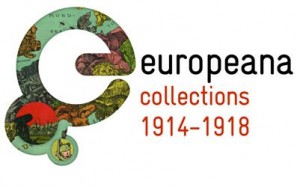It’s great to see the Europeana Collections 1914-18 project get under way, bringing together sizeable digital collections from a range of European librares, and focussing them on a particular theme – in this case World War One
The concept of clustering of digital content on a particular topic has been on the radar for a while. And when content can be clustered from across an entire contient the ‘utopia’ of critical mass draws ever nearer.
But what will be interesting about this Europeana project is to see how the content will be made available. Simple search and browse facilities will be useful, but will only partially cater for scholarly needs. To ensure that what is provided is more than something that could be done via Google search, other facilities need to be included. These could include
- Textual and visual pattern searching; comparing similar texts and images
- Extractions of entities such as names, places, currencies
- Visualisation of metadata and extracted entities along spatio-temporal lines
- Developement of APIs to allow others to build interfaces on top of the digitised material
- Download for other text and data mining purposes
- Interaction with other social media tools such Zotero, delicious to allow for bookmarking and citiations
The licencing issue will be also interesting. The more open the content is, the more likely it is to be used, and the easier it will be to mee the advanced scholarly needs. But will it be possible to harmonise a licencing framework across several libraries?
The business model will also require thought. The use of Europeans provides a sustainable technical infrastrutcure, and this is great place to start from. But it is just as vital to keep adding new content and provide editorial sustainability, so that users return to the site.
How will new content be added to this Europeana portal when new matieral is digitised around Europe? Or indeed existing content such as the First World War Poetry Archive or The Serving Solider? And how will the tools and appearance be refreshed?

